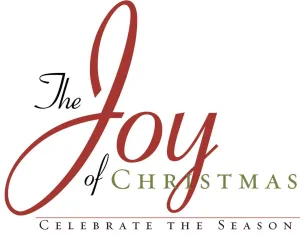John 1:1-14
I have a poem I’d like to share with you. It’s called “The Month After Christmas.”
Twas the month after Christmas, and all through the house,
Nothing would fit me, not even a blouse.
The cookies I’d nibbled, the eggnog I’d tasted.
All the holiday parties had gone to my waist.
When I got on the scales, such a number arose!
I walked to the store (less a walk than a lumber).
I’d remember the marvelous meals I’d prepared;
The gravies and sauces and beef nicely rared,
The wine and the rum balls, the bread and the cheese
And the way I’d never said, “No thank you, please.”
As I dressed myself in my husband’s old shirt,
And prepared once again to do battle with dirt—
I said to myself, as I only can,
“You can’t spend a winter disguised as a man!”
So, away with the last of the sour cream dip,
Get rid of the fruit cake, every cracker and chip,
Every last bit of food that I like must be banished,
Till all the additional ounces have vanished.
I won’t have a cookie–not even a lick.
I’ll want only to chew on a long celery stick.
I won’t have hot biscuits, or cornbread, or pie,
I’ll munch on a carrot and quietly cry.
I’m hungry, I’m lonesome, and life is a bore—
But isn’t that what January is for?
Unable to giggle, no longer a riot.
Happy New Year to all, and all a good diet![1]
So take a big breath, and now let out a big sigh.
Christmas is over!
Or is it?
Let’s think about this for a minute.
We are actually in the middle of celebrating the Christmas season right now because Christmas doesn’t begin until December 25th, when we celebrate the birth of the baby Jesus. So, according to the Christian calendar, we are just starting the Christmas Season.
Of course, according to the secular world, Christmas started the day after Halloween and ended on December 25th. This lengthy season gives us, the consumer, plenty of time to spend, spend, spend –
because love for our fellow man is measured by how much we spend, right?
Then, on December 26th, the POST-Christmas season begins, when you rush out to big sales to spend even more money on items you didn’t receive on the 25th.
We are always so busy during the Christmas season. We are rushing here, rushing there. Yet, as we opened our presents that morning, the thought that had been dwelling in my mind for the past several weeks came to the forefront of my thinking. We, as Christians, are polarized by this holiday. We battle against the secularization and commercialism of one of the two most Holy days in the life of a Christian.
We participate in the holiday hustle and bustle of shopping, parties, etc., while raging against the system. Our priorities are all tangled up, just like our tree lights when we get them out each year, no matter how hard we try to keep them neat and orderly. So we close our eyes and try to focus on the reason for the season, but the world keeps getting in our faces when we open them.
These two pictures do not go together. They conflict with one another. So we come away confused, wondering what we are supposed to see at Christmas time.
Who is this child born into our midst? That’s the question.
The story opens with Jesus’ birth to Mary and Joseph, the angels singing, and the shepherds, actual working and struggling people like us, coming to behold this strange new gift to a world on the edge of despair. But the readings for Christmas Day do not answer who this child is. Instead, they embrace the sweep of human and divine history. They look back and forth to find the depth of the mystery and meaning of Christmas.
John 1:1-14 is the third time the Bible tells a Christmas Story. It is the same story we heard last night; the story of the manger and the shepherds and the angels — and the same story Matthew tells in his Gospel, with Joseph’s dreams and the wise men, but the point of view is different. John’s Gospel sounds strange to ears more accustomed to descriptions of crowded inns and angel choirs. That’s because other people are telling the same story.
The Christmas story we are all most familiar with: Mary, Joseph, baby Jesus, Bethlehem, angels, shepherds, and some outstanding singing. We usually throw in a donkey or a barn and add our little adventure that every door in Bethlehem was slammed in poor Joseph and Mary’s faces, although none of that is in the text.
This morning, however, we hear the same Christmas story. Still, we are told very differently than the one we are most familiar with: no Mary and Joseph, no angels or shepherds, no little town of Bethlehem, no swaddling clothes or manger.
John begins the birth story in John 1:1:
“In the beginning was the Word, and the Word was with God, and the Word was God. He was in the beginning with God. All things were made through Him. And the Word became flesh and dwelt among us.”
John begins the story a lot earlier — he reminds us that Christmas begins just before Genesis — before the beginning of creation. John talks about the Word of God —God in action, God creating, revealing, and redeeming.
The Word was with God, and the Word was God.
Then he tells the birth story — in only nine words:
“And the Word became flesh, and dwelt among us.”
‘The Word’ who was with God in creation, the one who is God at work in history and human life, this one became a person, became flesh — as utterly human as you and I. Not God with a “people-suit” disguise on; not a good person whom God rewarded and made memorable, not a super angel God created earlier and saved up for Bethlehem.
Only God can tell us that the baby born to Mary in Bethlehem is the eternal Word. If God had not told us THIS Christmas story, we would still have THAT Christmas story about Mary and Joseph and angels and shepherds. But we would never see its significance.
Shocking!
Unbelievable!
The Word becomes flesh in a vulnerable, inarticulate baby. The message is this: someday, the child will grow and become an adult and walk, talk, love, live, say things, and do things that will show us how much God loves us. But even here, even in this Christmas season, what we celebrate is not the potential for communication that a baby has—but that someday God will speak through incarnate life. We celebrate that this baby, the Word made flesh, was already a wholly formed message of love, full of grace and truth toward us. God is saying:
Here I am.
I am with you.
I am for you.
I am trusting myself to you.
I need you.
Christmas means that God keeps His Word. John 1:1,14 says:
“In the beginning was the Word, and the Word was with God, and the Word was God.
And the Word became flesh and lived among us……”
You see, God is a God of His Word 365 days a year. In that sense, we can celebrate Christmas all year. In one of my all-time favorite movies, the original Miracle on 34th Street, the character played by Edmund Gwenn explains it best with the line,
“Christmas isn’t a day; Christmas is a state of mind.”
To sum it all up, the next time someone asks,
“Well, Christmas is over … now what?”
ask them what they mean by Christmas being over.
Christmas is never over because God keeps His Word 24 hours a day/ 7days a week /365 days a year.
Jesus came into the world to know human suffering and teach important lessons to serve humankind forever. Ultimately, Jesus, the light of the world, came to deliver his people from sinful ways and point them toward salvation.
Let us pray:
God, I approach this Christmas season with some trepidation, and a lot of fear and trembling. Because I don’t know if I really understood before, what was sacred,
before now.
All the pomp and circumstance of Christmas lies by the wayside now, like crumpled wrapping paper. After all, we are not here to impress anybody. What is left is the Christ Candle, burning the conviction into our hearts, that life is sacred, precisely because it is all so unique and beautiful and brief.
Fill us up, with what Christmas means for each of us this year. Reminding us that God sent a baby in a manger for every one of us and God values us– enough to send babies and angels, and teachers and doctors and nurses, and vaccines and masks, and phone calls and cards, and candles and stars, and every other symbol that we need to remind us that we are beloved.
And that we are here to fill the world with love any way we can, because that is the Christmas miracle turning emptiness into something else.
Let us go and be comforted by the Love of God.
May God bless us and keep us in Belovedness—
wrapped in the miracle that God is here. [2]
Amen.
Delivered at Trinity Episcopal Church on Capitol Square, Columbus, OH; December 25, 2023
[1] Author unknown, The Wonders of Christmas
[2] Excerpted from Pastor Katy Stenta




